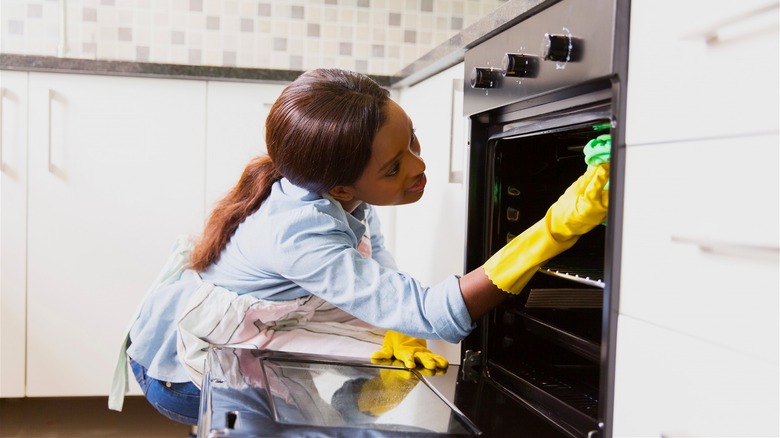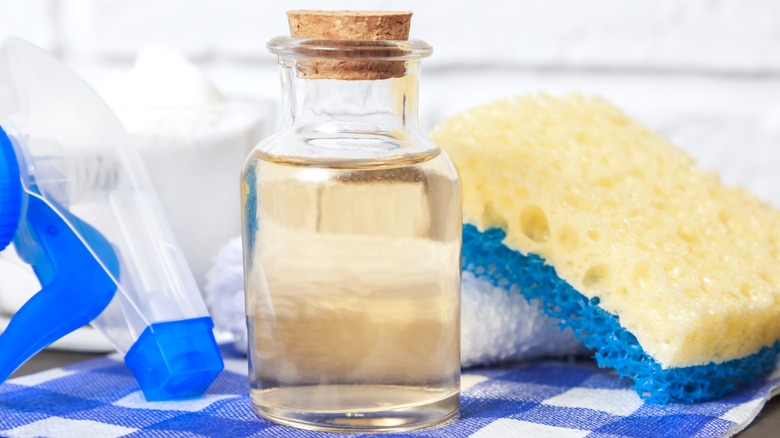If You're Not Using Lemon Oil To Clean Your Oven, You're Doing It Wrong
We may receive a commission on purchases made from links.
Bringing the right stuff to an oven cleaning session isn't a simple matter. The oven is nowhere to play around with weak cleaners; you've got caked-on, baked-in grease drippings turning to stone in there. But it's also where you put your food — and, while scraping out grime, much of yourself. So you don't want to spend your entire battle with oven gunk fighting against conventional cleaners' well-documented use of toxins and caustic chemicals, such as lye. This is where the underdog contender, lemon oil, enters the fray. It smells lovely and is often packaged for aromatherapy, but packs a serious punch. And it won't hurt you, which is a significant advantage for those who have ever felt lightheaded after doing this chore.
When you look into why some people say you should stop using oven cleaners immediately, you might feel momentarily encouraged ("If I have to open a window, it must be strong enough!") and, a second later, a bit terrified ("Wait, I also have to wear gloves, goggles, and a mask?"). The danger of breathing an aerosol cleaner is off-putting to many, and more people are finding all the cleaning power they need in lemon oil. Yes, it's oil from a fruit and has a pH that falls somewhere between milk and water. But it's also chock full of an industrial degreaser in the form of lemon terpenes, which are adept at dissolving things like last week's lasagna and whatever that stuff on the oven window is.
How to use lemon oil for oven cleaning
Learning how to use lemon oil to clean your kitchen is one thing, but cleaning an oven is a whole other battle, so we recommend a one-two punch that uses an abrasive paste and grime-busting spray. Start with the scrubbing paste; most DIY formulations combine about 5 to 10 drops of lemon oil with ½ cup of baking soda, some table salt, and a tiny bit of dish soap. On the other hand, making lemon oil spray is even easier, as there are concentrated products for just that purpose. This one from Amazon recommends one ounce of oil mixed with water to make a gallon of cleaner. Other versions recommend replacing half or more of the water with distilled white vinegar for extra cleaning power.
Brush on your paste, and, for particularly stubborn gunk, cover it with plastic wrap so it doesn't dry out while sitting for up to 30 minutes. The paste will probably secure the plastic wrap on the door and walls, but you can use a couple of refrigerator magnets if the need arises. After half an hour passes, drench the paste with your all-purpose spray and wipe it down with a microfiber cloth. Finally, go over the whole thing with a damp, soft cloth to remove any remaining residue. If you need to, you can also scrub the remaining messes with a brush. However, due to this technique's potency, there's an excellent chance you won't need to.

